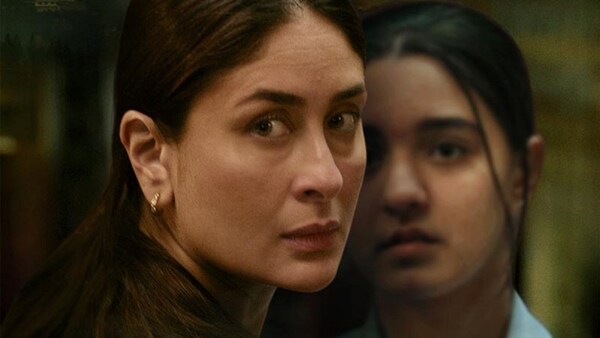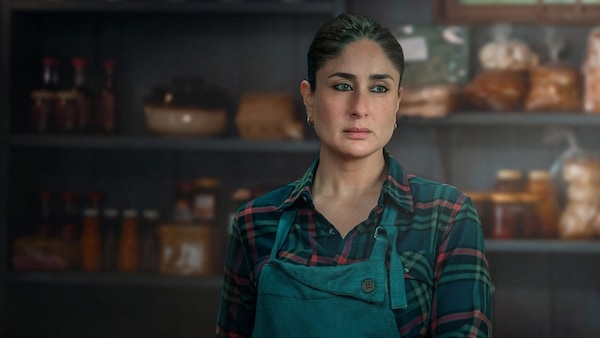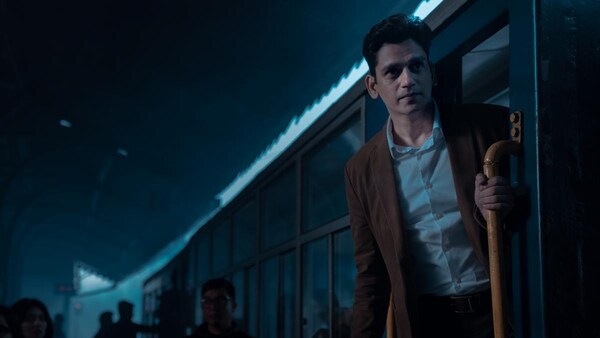Jaane Jaan: Sujoy Ghosh's Moody Thriller Works — Until It Doesn't
This is #CriticalMargin, where Ishita Sengupta gets contemplative over new Hindi films and shows.

Last Updated: 02.40 PM, Sep 21, 2023
This column was originally published as part of our newsletter The Daily Show on September 21, 2023. Subscribe here. (We're awesome about not spamming your inbox!)
***
This post contains minor spoilers for Jaane Jaan.
IT is hard not to like Sujoy Ghosh’s Jaane Jaan, a moody thriller that unfolds in a quaint hill station. Notwithstanding the maker’s uneven reputation of helming mysteries in the past, there is a lot going for the film. It is an adaptation of Keigo Higashino’s The Devotion of Suspect X, the 2005 novel that is regarded as a defining work of crime fiction for the clinicality with which it approaches the genre. The porosity of the premise — a man saving a woman because she had saved him from himself — makes way for myriad interpretations. Jaane Jaan is also a classic instance of the gratifying diversity that exists in the Hindi film industry today. A film headlined by Kareena Kapoor Khan, Jaideep Ahlawat and Vijay Varma, actors who otherwise would have been stuck in hierarchical stratas in a pre-streaming era, is evidence of a new reality and prone to offering rewards.
Several scenes in Jaane Jaan catch you unaware and leave you wanting. Take for instance that moment when Naren Vyas (Ahlawat), the timid math teacher in a local school, looks at himself in the mirror and rehearses a conversation he will eventually have with someone he is besotted with. But in his story he enacts her and, in a twisted way, looks at his reflection to look at her with more care. Or, take that moment when another besotted man Karan Anand (Vijay Varma), a police officer entrusted to solve a murder case, goes through an investigation proceeding in his head and physically flinches when the face of the convict emerges. Like he has been struck on the face.

It all makes sense. The woman in question is Maya D'Souza (Kareena Kapoor Khan), a single mother of a teenage daughter who works at a bakery in Kalimpong. Her distinct status convinces two men they can outwit her, or even better, take care of her. Khan lends a terrific watchability to an underwritten role. There are the little things she does. Like when she expresses exasperation with a soundless sigh, stares at someone while being fully aware of the fatality of such a stare. Jaane Jaan is also her streaming debut. In the recent past, a host of legacy actors from the big screen, like Kajol, Madhuri Dixit, Raveena Tandon, Sushmita Sen have made this transition. Most of them carried the baggage of their persona and faltered in calibrating their performances to suit the medium. Not Khan. As Maya, she is so immensely good that she invites attention without doing a thing. She imbues her performance with a slithering darkness and fortitude of maternal preservation. It is an unvarnished portrayal, and in Khan’s hands the role becomes better than the writing allows it to be.
An accompanying predicament of watching Jaane Jaan is reckoning with this duality. The writing (Ghosh and Raj Vasant are credited) is patchy but the three actors on screen are so mesmerising that till the most part they make you take no notice of it.
There is an unsaid joy in watching Ahlawat and Varma on screen, alone and when they are together. Both actors bring a certain ease to their portrayals, a lived-in familiarity that vastly benefits the film. Ahlawat’s get-up and body language appear similar to Bob Biswas, an iconic fictional character in Ghosh’s Kahaani (2012), but the actor makes Naren his own. Whenever he sees Maya, there is a little blush on his cheeks, a closed smile on his lips. The actor renders his role — a numbers-loving, creepy neighbour who practices jiu-jitsu — with an affecting singularity.

There is a fulfilling emotional transaction in all his scenes with Varma. Like the way his character inspects Karan’s hair with abject envy and then feels his own thinning mane. Or, when Karan refers to Maya as his “hot neighbour” and the colour from his face feels drained. Both of them even make an obvious film schoolesque confrontation scene work.
This begs a more urgent question: What is Jaane Jaan without the actors? The answer is: Nothing. The film is nothing not in the way it would not have existed without them but in the way the narrative collapses if you take them out of the picture. Ghosh, a decent director who continues carrying the success of Kahaani like a cross, hews close to the book for the most part: A woman finds her estranged abusive husband at her doorstep and in a heated moment, kills him. Her neighbour steps in to cover up the crime for her.
The setting works. The misty bylanes of Kalimpong offer a nice setting to the story without interfering with the plot. The characters are mostly shot in close-ups (Avik Mukhopadhyay is the cinematographer) which amplifies the sense of dread. I also liked Ghosh's re-reading of the crime thriller as a fevered love story in which he gives Ahlawat’s feelings a touching centerpiece.
The problem with Jaane Jaan is also what is inherently a Sujoy Ghosh problem: the third act. Post Kahaani, he has never been able to make the ending of his thriller work (Badla is a telling example). In many ways even the cop outs in his 2012 outing work for the way they are integrated in the story. It ceases to matter that he cheats the audience with the flashbacks because of the emotional investment his female protagonist seeks from us. With Jaane Jaan, Ghosh commits the fundamental sin of having an actor like Khan and reducing her to a helpless single mother. His refusal to do anything more with the character might have stemmed from wanting to outsmart an audience attuned to his tricks, but in the process he does severe disservice to the actor and what the film could have been.

What stares back is a tepid ‘love story’ which is both bizarre and outrageous. The scattered bits do not fit. The twists reveal themselves to be reverse-engineered to arrive at an ending that feels both unnecessary and facile. Besides, you know a film has failed itself when Ahlawat struggles to be convincing. Last time he looked this awkward was in Netflix’s Ajeeb Daastaans (2021). By the time Jaane Jaan concludes, it becomes apparent that the actors did not deserve the film. But the only way the film deserves being a film is because of the actors.
(Disclaimer: The views expressed in this column are those of the author and do not necessarily reflect the official policy or position of OTTplay. The author is solely responsible for any claims arising out of the content of this column.)

 Premium
Premium